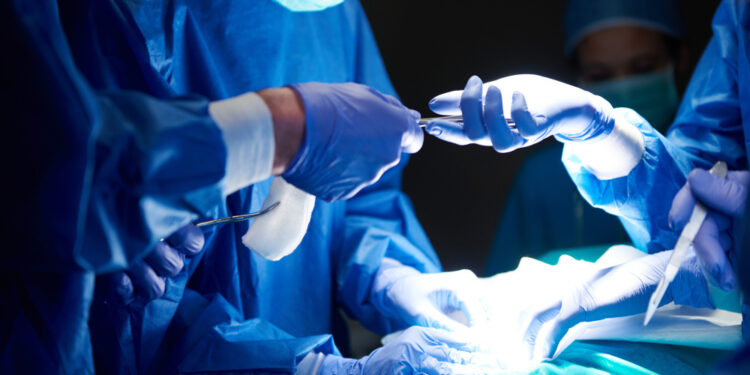Kidney surgery is often a life-changing step for patients facing severe health challenges. Although the thought of surgery may feel daunting, knowing what to expect can make the process much less stressful. For those considering treatment in cities like Delhi, understanding how kidney surgery is performed, what the preparation involves, and the kind of aftercare required is helpful. Delhi, with its advanced medical facilities and experienced specialists, is a key destination for anyone seeking reliable treatment.
Understanding Kidney Surgery
Kidney surgery may be recommended for various reasons. Some patients require surgery because of kidney stones that cannot be treated through non-surgical methods, while others may need it due to structural problems, tumours, or kidney failure. In severe cases, patients may undergo kidney failure surgery in Delhi, where specialised centres and highly trained medical teams are equipped to handle complex procedures.
Pre-Surgery Evaluation
Before the operation, patients undergo a thorough assessment. This includes detailed medical history, physical examinations, blood tests, and imaging studies like ultrasound or CT scans. These tests help doctors to assess kidney function, check for other health conditions, and plan the best approach for surgery.
The pre-surgical evaluation may also involve consultations with specialists such as anaesthesiologists, nephrologists, and cardiologists to ensure the patient is fit for surgery. For patients with existing health conditions like diabetes or heart disease, additional assessments may be required to reduce risks during and after the operation.
Preparing Physically for Surgery
Physical preparation plays a vital role in recovery. Doctors often advise patients to:
- Follow dietary changes as recommended.
- Stop certain medications that may affect blood clotting.
- Fast for a set number of hours before surgery.
- Quit smoking and reduce alcohol intake.
- Arrange for support from family members at home after discharge.
These steps help to reduce surgical risks and ensure patients are better prepared for the healing process.
Mental and Emotional Preparation
Preparing emotionally for surgery is just as important as physical readiness. Patients may benefit from:
- Talking openly with doctors to clear doubts and ease concerns.
- Attending counselling sessions if offered by the hospital.
- Practising relaxation techniques such as meditation or breathing exercises.
Taking these steps can make the process less stressful and help patients feel more confident before surgery.
The Day of Surgery
On the day of surgery, patients are usually admitted to the hospital several hours earlier. They are asked to change into hospital clothing and are then prepared for anaesthesia. Once the anaesthesia takes effect, the surgery is performed. The duration depends on the type of surgery, with laparoscopic procedures usually taking less time than open surgeries.
During surgery, the medical team carefully monitors vital signs, including heart rate, blood pressure, and oxygen levels. Modern operating theatres in Delhi are well equipped with advanced monitoring systems to ensure patient safety.
Post-Surgery Recovery in Hospital
Recovery begins in the hospital, where patients are kept under close observation. They are moved to a recovery area and later shifted to a regular ward once their condition stabilises. Pain management is an important part of recovery, and doctors prescribe suitable medications to keep patients comfortable.
In most cases, patients may need to stay in the hospital for a few days, depending on the complexity of the surgery and their overall health. During this period, doctors monitor kidney function, wound healing, and vital signs. Patients are encouraged to move around gently once approved by their doctors, as this helps prevent complications like blood clots.
Discharge and Home Care
Once discharged, patients must follow clear medical advice to recover well. Key instructions often include:
- Taking prescribed medicines without missing doses.
- Keeping the surgical wound clean and following proper care guidelines.
- Following a kidney-friendly diet with low salt and adequate hydration.
- Resuming physical activity gradually, starting with light walking.
- Attending follow-up appointments to track progress and kidney function.
Sticking to these steps supports smooth recovery and helps prevent avoidable complications.
Possible Risks and Complications
Like any major surgery, kidney surgery carries some risks. Patients should be aware of the following:
- Risk of infection.
- Bleeding during or after surgery.
- Reactions to anaesthesia.
- Slower or delayed healing.
While these risks exist, proper planning, skilled surgical teams, and careful follow-up care can reduce the chances of severe problems.
Why Delhi is a Preferred Choice?
Delhi is considered one of the leading centres for kidney treatment in India. The city has numerous hospitals with renowned specialists, modern infrastructure, and support systems for international and domestic patients. Affordability is another factor, as patients can access world-class treatment at costs significantly lower than in many Western countries. Many hospitals also offer dedicated support services for patients travelling from other regions, including help with accommodation and translation services when required.
Conclusion
Preparing for kidney surgery involves more than just the procedure itself. From physical preparation and emotional readiness to post-surgery care, each step plays a key role in achieving successful outcomes. Patients choosing treatment in Delhi benefit from advanced medical expertise and comprehensive care, making the process smoother and more reassuring. For those considering kidney failure surgery in Delhi, understanding the preparation process and following medical guidance closely can make a difference to recovery and long-term health.









